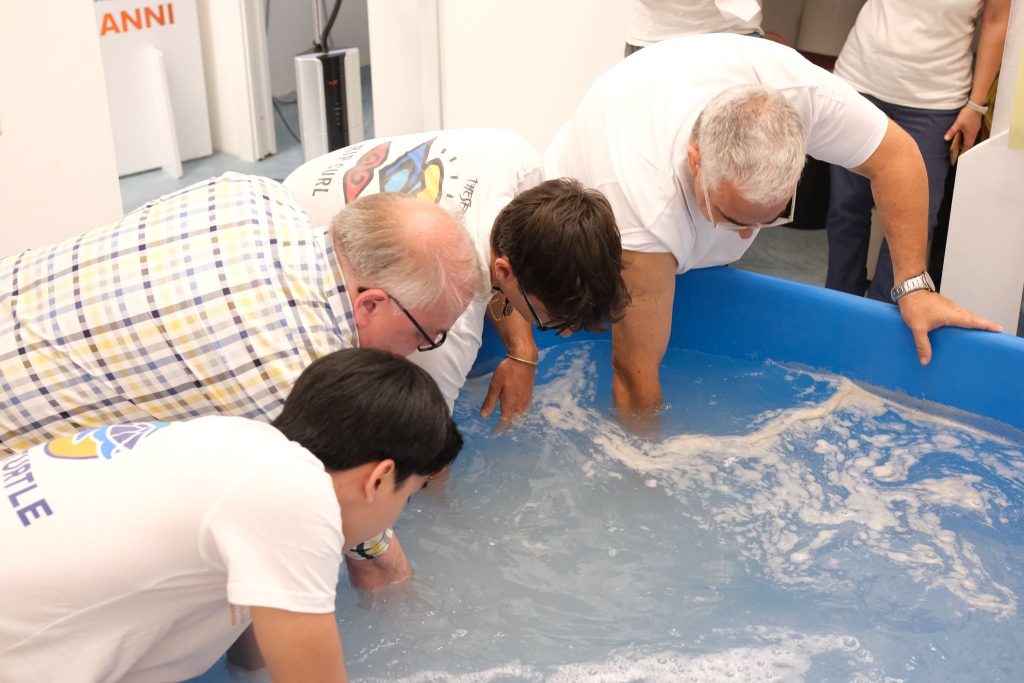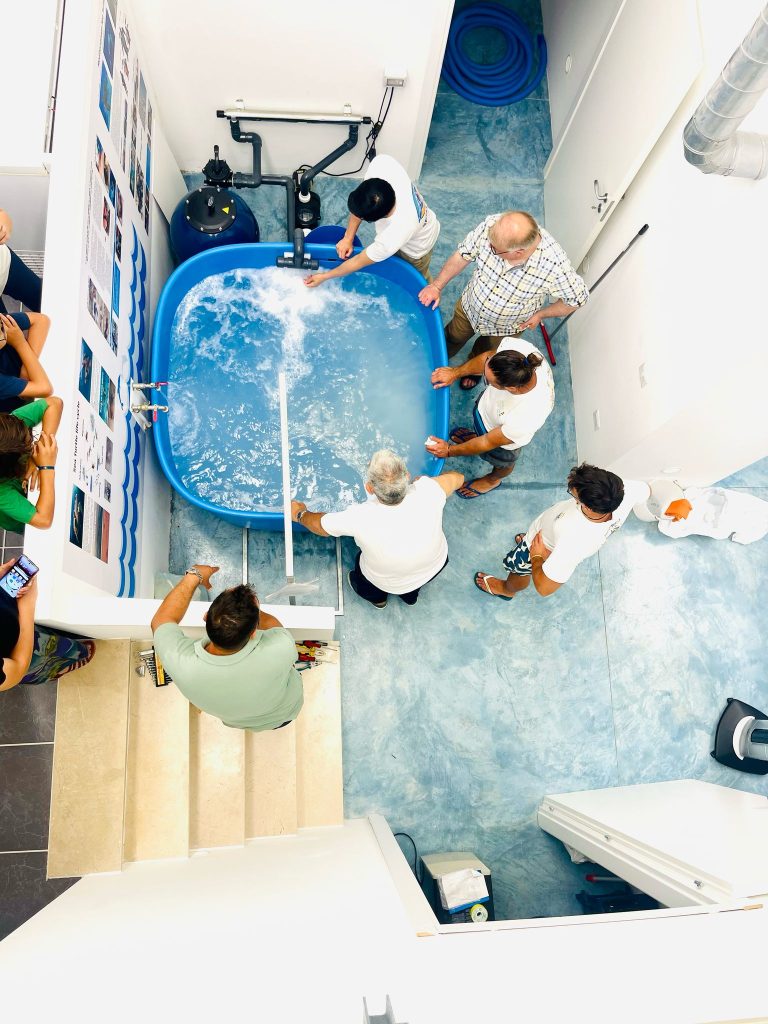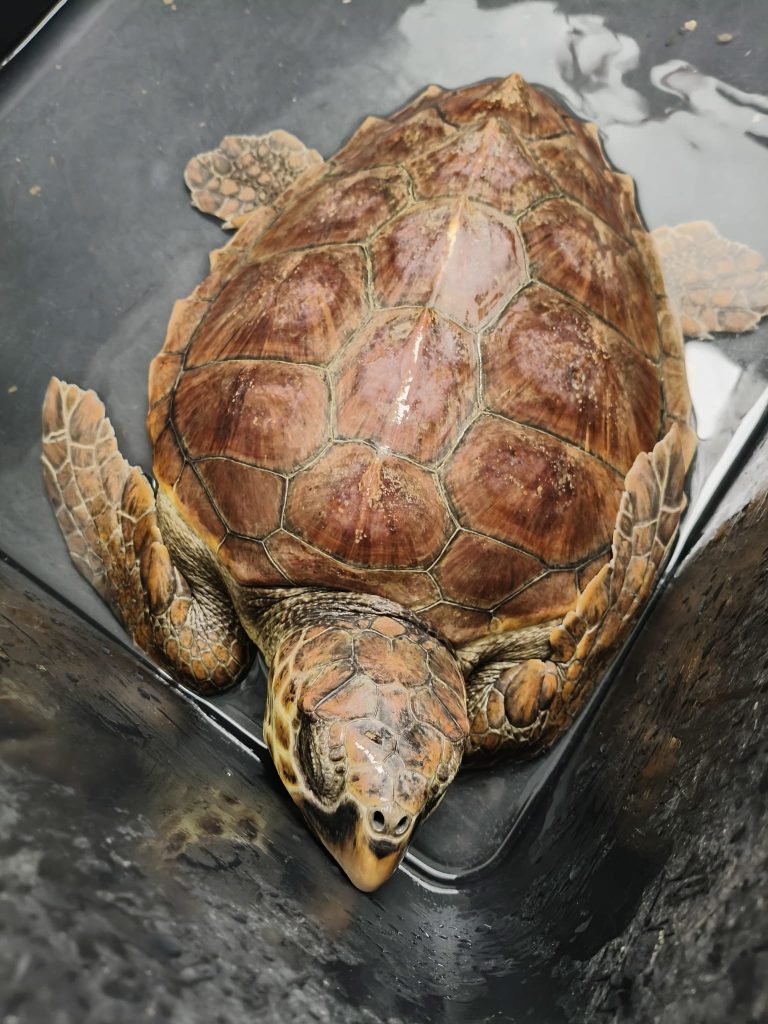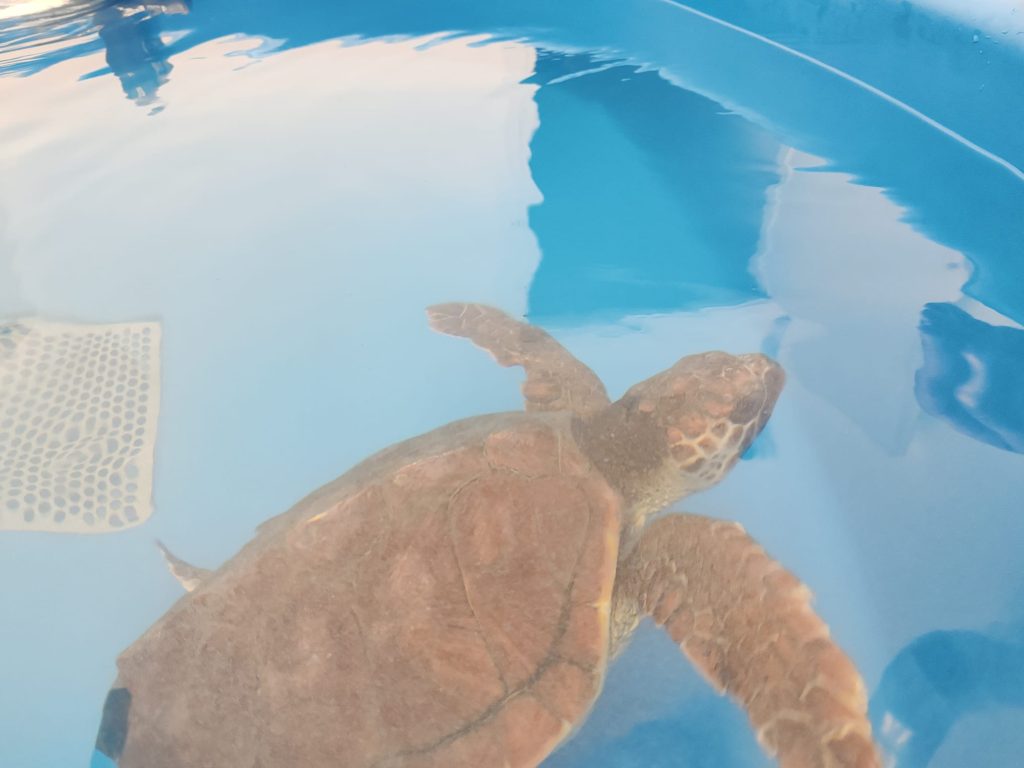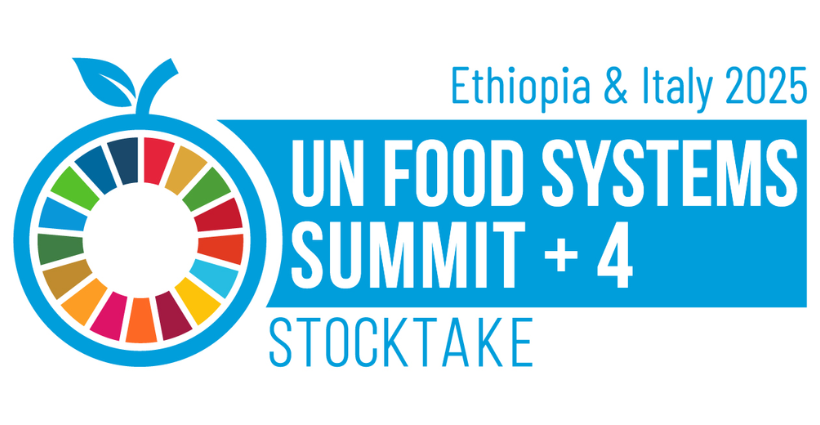
In occasione dell’UN Food Systems Summit +4 (UNFSS+4), che si terrà dal 27 al 29 luglio 2025 ad Addis Abeba, in Etiopia, il CIHEAM Bari e il Santa Chiara Lab – Università di Siena, in collaborazione con il Ministero degli Affari Esteri e della Cooperazione Internazionale (MAECI), promuoveranno un side event internazionale dedicato al tema del vero valore del cibo.
L’iniziativa vedrà tra i protagonisti Biagio Di Terlizzi, Direttore del CIHEAM Bari, e Angelo Riccaboni, Presidente del Santa Chiara Lab, e si inserisce nel programma ufficiale del Summit, che sarà aperto dal Segretario Generale delle Nazioni Unite Antonio Guterres, dal Primo Ministro italiano Giorgia Meloni e dal Primo Ministro etiope Abiy Ahmed Ali.
A quasi quattro anni dal Vertice ONU sui Sistemi Alimentari del 2021, l’UNFSS+4 rappresenta un momento cruciale per riflettere sui progressi compiuti, rafforzare il dialogo multilaterale e mobilitare risorse per accelerare la transizione verso sistemi agroalimentari più sostenibili, resilienti ed equi.
Il side event promosso da CIHEAM Bari e Santa Chiara Lab si focalizzerà sulla necessità di integrare nei processi decisionali e valutativi delle aziende, delle istituzioni e dei consumatori le esternalità ambientali, sociali e nutrizionali, positive e negative, con l’obiettivo di rendere più equi e trasparenti i sistemi alimentari globali.
Il progetto, sostenuto da una solida coalizione multi-attoriale che include Save the Children, UNIDO e importanti realtà del settore privato come Illy, Ferrero e Lavazza, punta a costruire una metodologia condivisa di True Cost Accounting capace di guidare scelte più consapevoli lungo l’intera filiera agroalimentare.
Nel corso dell’evento saranno presentati i primi risultati del progetto, che ha avviato una mappatura delle metodologie di valutazione attualmente in uso e delle pratiche di misurazione adottate da imprese italiane attive in Africa, con particolare riferimento alle filiere del caffè e del cacao. L’obiettivo è duplice: diffondere le pratiche più virtuose e affinare gli strumenti per calcolare il vero valore del cibo, tenendo conto dell’intero impatto generato.
Il panel si configurerà come uno spazio di confronto tra esperti, istituzioni, imprese e organizzazioni internazionali, volto a promuovere una visione più olistica e responsabile della produzione e del consumo agroalimentare.
Tra i relatori confermati:
Oggi è stato siglato un importante accordo quadro di collaborazione tra il CIHEAM Bari e l’Azienda Sanitaria Locale di Brindisi (ASL BR) con l’obiettivo di sviluppare iniziative congiunte nei settori della sicurezza alimentare, della salute e del benessere animale.
La firma è avvenuta alla presenza dei rappresentanti istituzionali delle due organizzazioni. Per l’ASL Brindisi hanno partecipato il Direttore Generale, dott. Maurizio De Nuccio – firmatario dell’Accordo, il Direttore del Dipartimento di Prevenzione, dott. Stefano Termite, e il Responsabile dell’Ufficio Comunicazione, dott. Giacomo Dachille.
Per il CIHEAM Bari era presente il Direttore, dott. Biagio Di Terlizzi.
Con una durata quinquennale, l’accordo sancisce un impegno comune finalizzato a promuovere la partecipazione congiunta a progetti di cooperazione internazionale, ricerca, formazione e assistenza tecnica in linea con gli obiettivi dell’Agenda 2030 per lo Sviluppo Sostenibile.
La collaborazione prevede lo scambio di competenze e personale tecnico, l’organizzazione di seminari e workshop congiunti, nonché la condivisione di strutture e risorse tecnico-scientifiche. Particolare attenzione sarà dedicata alla formazione di funzionari e tecnici provenienti da Paesi Terzi, con l’intento di favorire le loro capacità istituzionali, la diffusione di buone pratiche e lo sviluppo sostenibile nel bacino del Mediterraneo e in altri contesti internazionali.
Questa intesa rappresenta un passo significativo verso una maggiore integrazione tra salute pubblica e cooperazione internazionale, nella consapevolezza che la salute umana, animale e ambientale sono elementi inscindibili in un approccio “One Health”.
The eighth Italian Living Lab of the European Grass Ceiling project has just concluded in Ruvo di Puglia. It was a meaningful event, where past and future came together in the personal stories of eight women at the heart of the journey.
Drawing from their own experiences as innovators in rural contexts, the participants took part in a narrative workshop titled “From Soil to Voice: How to Tell Who You Are and Why You Do What You Do,” led by journalist and documentary filmmaker Ernesto Pagano. It was an intense and emotional session that reopened drawers of memory, bringing back gestures, scents, and childhood imagery: hands covered in soil, a cloud-filled atlas, a father reading stories before bed. Simple yet telling memories — already hinting at the road ahead.
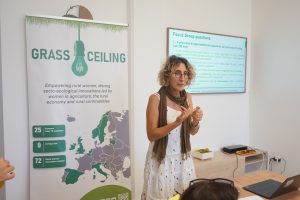
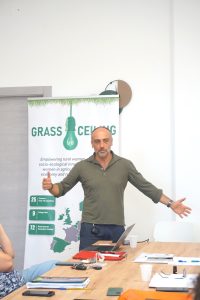
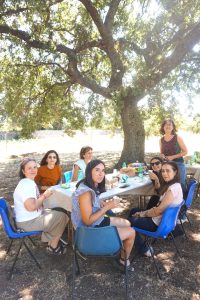
The second half of the day shifted toward action: Maria Grazia de Nicolò, representative of Puglia Sviluppo, introduced the regional initiative “Nidi,” a funding measure designed to support the creation of new businesses, with particular attention to self-employment and women entrepreneurs.
The meeting concluded with a focus group — an intimate and participatory space for gathering feedback from the protagonists, reflecting on the value of the learning journey both personally and collectively. It was a meaningful opportunity to give voice to emotions, inner transformations, and the bonds formed throughout the experience.
Funded by the European Horizon Europe programme, Grass Ceiling is a three-year journey launched in 2022, aimed at empowering women in rural settings. It blends storytelling and innovation, roots and vision — with the goal of creating new opportunities and amplifying the voices of women in rural areas.
The project will wrap up in December 2025, with a final event scheduled for autumn 2025.
Il CIHEAM Bari ha partecipato alla Ukraine Recovery Conference 2025 (URC2025), avviata il 10 luglio a Roma e co-organizzata dai Governi italiano e ucraino. L’evento -principale appuntamento internazionale dedicato alla ripresa, ricostruzione e modernizzazione dell’Ucraina- ha visto la presenza di oltre 100 delegazioni governative, 40 organizzazioni internazionali, imprese, autorità locali, società civile.
In questo contesto di rilievo, il CIHEAM Bari ha annunciato la firma dell’accordo operativo che sancisce l’avvio delle attività sul campo del progetto di cooperazione per la riattivazione e lo sviluppo del comparto agroalimentare nella regione di Odesa, finanziato dalla Cooperazione Italiana allo Sviluppo. Il progetto sarà implementato in partenariato con il Ministero dell'Agricoltura e dell'Alimentazione ucraino e con il governo regionale di Odesa.
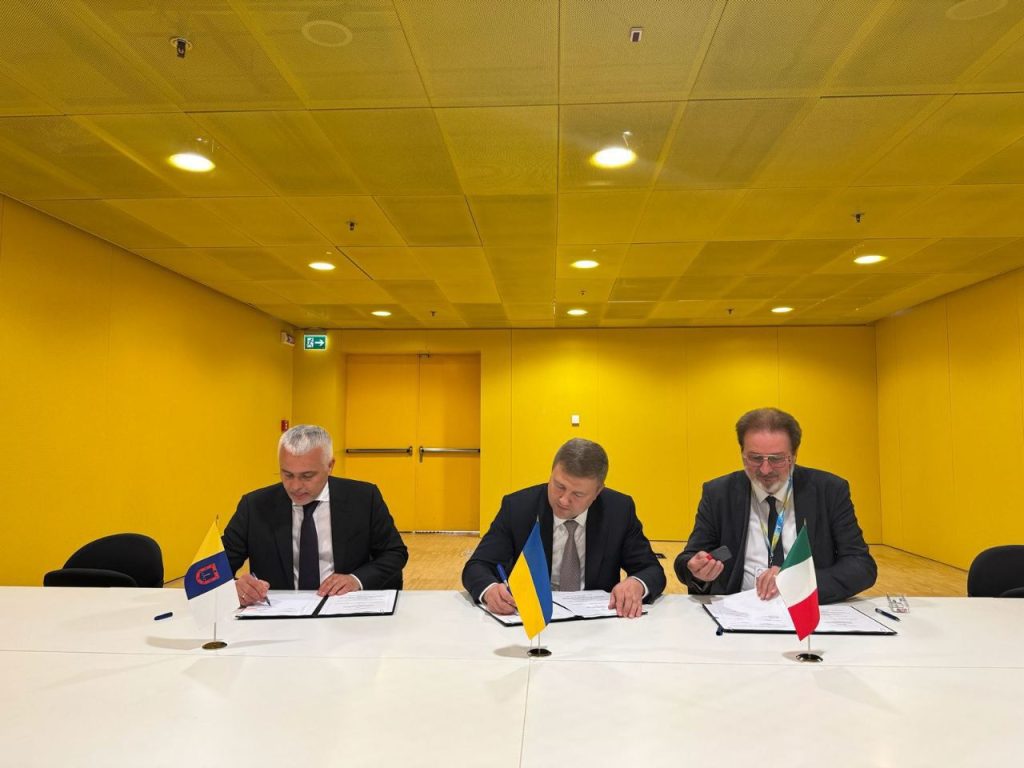
L’accordo prevede l’avvio del Progetto Pro.UKR, che mira a rafforzare il tessuto economico rurale, sostenendo i piccoli e medi produttori agricoli: saranno promosse la creazione di cooperative, l’accesso a moderne attrezzature agricole, percorsi di formazione tecnica e servizi di consulenza specializzata.
Secondo il ministro delle Politiche Agrarie e dell'Alimentazione dell'Ucraina, Vitalii Koval, la promozione della cooperazione rappresenta una priorità strategica. In Italia, una quota rilevante del settore agricolo è organizzata in forma cooperativa, mentre in Ucraina sono presenti numerose cooperative agricole che necessitano di un nuovo impulso per diventare più competitive ed efficaci.
Il CIHEAM Bari, presente alla URC2025 con una delegazione ufficiale, ha sottolineato l’importanza della firma dell’accordo operativo come un passo concreto verso la ricostruzione del comparto agroalimentare in una regione strategica come Odesa.
Il progetto si inserisce pienamente nella cornice tematica della Conferenza, che pone al centro il rilancio delle economie locali, la coesione territoriale e l’allineamento alle riforme del processo di adesione all’Unione Europea. Particolare attenzione è stata inoltre riservata alla dimensione culturale e alla tutela del patrimonio nelle aree colpite dal conflitto.
Dal 14 al 18 luglio prossimi, il Campus Cosimo Lacirignola del CIHEAM Bari ospiterà la 20ᵃ edizione de Le Giornate della Cooperazione Internazionale, un appuntamento strategico per la Cooperazione italiana e i numerosi attori coinvolti nei progetti di sviluppo in oltre 30 Paesi del Mediterraneo, Africa subsahariana. Asia e America Centrale.
La manifestazione vedrà la partecipazione di oltre cinquanta coordinatori di progetti finanziati dalla Cooperazione italiana e realizzati dal CIHEAM Bari, al fine di analizzare i risultati conseguiti negli ultimi sei mesi e definire le priorità operative per il semestre successivo.
L’apertura ufficiale si terrà alle ore 10.00 del 14 luglio nel MEDHUB e sarà avviata dagli indirizzi di saluto di Biagio Di Terlizzi, direttore del CIHEAM Bari, Maurizio Raeli, delegato del Governo italiano al Consiglio di amministrazione del CIHEAM, Stefano Gatti, direttore generale del Ministero degli Affari Esteri e della Cooperazione Internazionale – Direzione Generale per la Cooperazione allo Sviluppo.
I lavori proseguiranno, nei giorni successivi, con sessioni di formazione sulle modalità più avanzate di attuazione e realizzazione degli interventi di sviluppo e approfondimenti tematici, in sinergia con gli orientamenti espressi dall’Italia nell’ambito del Piano Mattei per l’Africa.
La 20ª edizione si conferma come un momento imprescindibile per rafforzare sinergie, valorizzare le buone pratiche e tracciare nuove rotte per una cooperazione sempre più efficace e sostenibile.
As part of the Robocoop-EU Project General Assembly, supporting circular bio-based innovation across Europe, a team from CIHEAM Bari carried out a mission from 1st to 3rd July 2025, with key engagements in Kozani and Thessaloniki.
Main Activities: (1–2 July, Kozani)
CIHEAM Bari delegates, Dr M. El Moujabber, Dr N. Driouech, and Dr F. Bottalico, presented and illustrated the current state of play and future direction of their respective leading tasks:
Strategic discussions and meaningful exchanges took place among all project partners — involving approximately 50 participants, including work package and task leaders — to align forthcoming project activities and strengthen collaborative efforts.
Key highlights
Panelist role: Greece, Italy and Spain HUBS (3 July, Thessaloniki),
In the framework of the 7th International Summer School on Bio-Circular Economy and Sustainable Development, Dr N. Driouech participated as a panellist in the International Workshop, where he shared the experience of the Apulia-HUB, with its regional workshops and Living Lab acting as innovation platforms for the development of scalable solutions in line with the EU Green Deal. He further emphasised the relevance of promoting and supporting territorial bioeconomy with a focus on olive and wine value chains.
The 7th edition of the Summer School this year marks a special milestone, bringing together leading researchers, policymakers, innovators, and students from across Europe for an inspiring week of knowledge-sharing, field visits, and community-building!
The mission highlighted promising avenues to strengthen CIHEAM Bari’s active involvement in international EU-funded projects, particularly those supporting sustainable, circular, and cooperative agri-food systems.
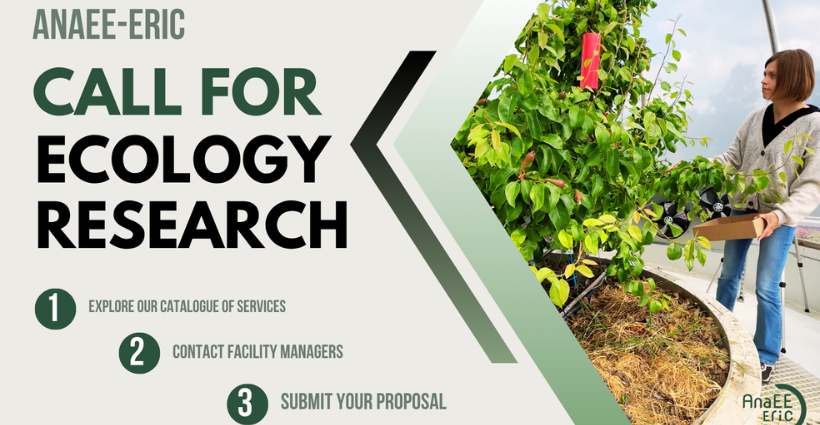
AnaEE-ERIC announces its inaugural call for proposals, inviting researchers from member
institutions an beyond to access Europe's most comprehensive network of experimental
ecology facilities. The call runs from June 2nd through October 3rd, 2025.
This first call offers researchers from some of Europe's most distinguished research
institutions unprecedented access to 60+ highly instrumented installations across all
continental ecosystem types – from tropical and mountain environments to wetlands, forests,
and agro-ecosystems.
The call encourages inter- and transdisciplinary applications, fostering collaboration between
member institutions to address critical environmental challenges including climate change
adaptation, biodiversity loss, and sustainable land management. AnaEE-ERIC's facilities
enable controlled ecosystem studies that provide essential data for evidence-based
environmental policy.
Researchers should explore the catalogue of services at anaee.eu, contact facility managers
to discuss feasibility, and submit proposals via the ISIA platform. An independent committee
will evaluate proposals based on scientific merit.
Application Deadline: October 3rd, 2025 at 23:59 CEST
For more information: anaee.eu or access@anaee.eu or download the file below:
È operativo da oggi, presso la nostra sede di Tricase, il nuovo Centro di Primo Soccorso per tartarughe marine, nato grazie alla collaborazione con Naturalia – Società Cooperativa Sociale, ente gestore del Centro Recupero del Museo di Storia Naturale del Salento di Calimera. L’iniziativa rafforza la rete di protezione della fauna marina nel Salento, offrendo un punto di intervento tempestivo lungo la costa meridionale per esemplari in difficoltà.
La sede CIHEAM di Tricase – attiva dal 2015 come centro di formazione, ricerca e cooperazione per lo sviluppo sostenibile delle comunità costiere – amplia così il proprio ruolo accogliendo temporaneamente gli animali recuperati sul territorio, per stabilizzarli e monitorarli prima del trasferimento al centro specializzato di Calimera. Nella stessa sede opera anche un distaccamento del Centro Mare di ARPA Puglia, grazie a un accordo per l’uso congiunto degli spazi e lo sviluppo di azioni comuni legate alla tutela ambientale e al monitoraggio delle risorse naturali.
La convenzione tra CIHEAM Bari e Naturalia prevede anche lo sviluppo congiunto di attività di monitoraggio ambientale, ricerca scientifica, formazione e sensibilizzazione, coinvolgendo operatori della pesca, scuole, studenti e ricercatori. Entrambe le realtà metteranno a disposizione le proprie competenze e strutture per promuovere una gestione sostenibile delle risorse naturali e contribuire alla conservazione delle specie marine, adottando un approccio integrato e partecipato.
Con questa iniziativa, il CIHEAM Bari – anche attraverso la sua sede di Tricase – rinnova l’impegno nella protezione della biodiversità e nello sviluppo sostenibile delle comunità costiere mediterranee. La collaborazione con Naturalia conferma la volontà condivisa di unire risorse, conoscenze e visione per affrontare con efficacia le sfide ambientali attuali.
La struttura ha già accolto il suo primo esemplare: un giovane esemplare di Caretta caretta precedentemente curata a Calimera, che resterà ospite a Tricase per alcuni giorni prima del rilascio in mare previsto per sabato.
